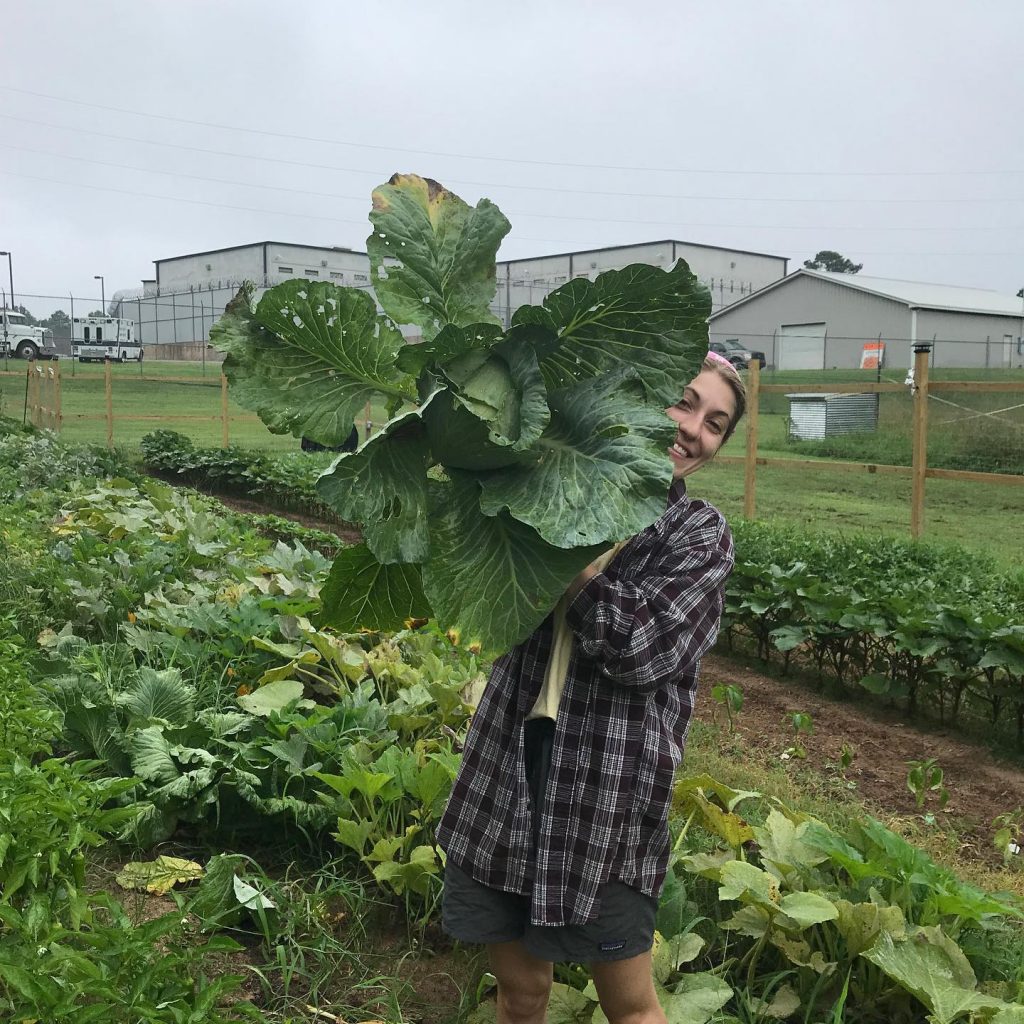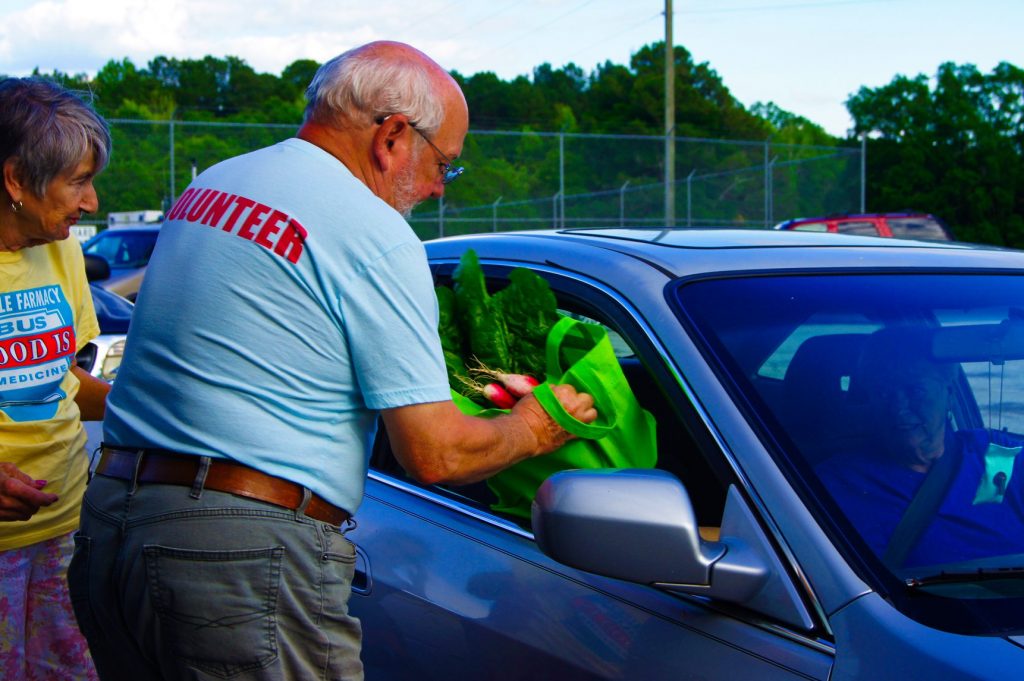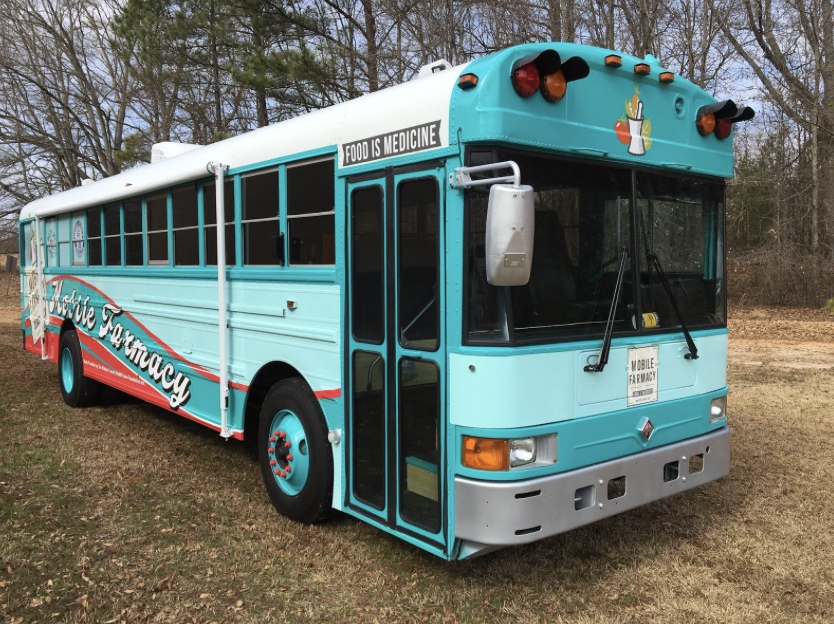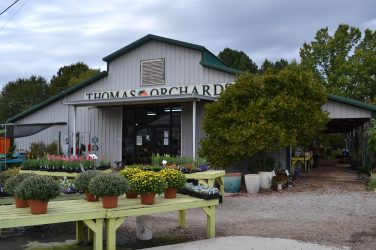Produce grown by inmates at the county jail is not a typical method of trying to combat food insecurity within a community, but sometimes outside-the-box ideas can provide new angles and new solutions. This is one of the many programs offered by Walton Wellness, a nonprofit organization aiming to provide opportunities for a healthy lifestyle for everyone in the community, to help bring fresh produce to those who cannot otherwise afford it.
“The way that we do things is very unique. The fact that we have this garden at the jail and we work with the inmates to help us with the garden, then that harvest is donated to the community,” DeDe Harris, executive director of Walton Wellness, said.
Food Sustainability in Northeast Georgia
Food sustainability includes two viewpoints: food insecurity and lack of proper nutrition for a community. According to Feeding America, the food insecurity rate in Athens-Clarke County in 2019 was 16.6% and is projected to reach 17.9% in 2021.
“Food insecurity at large and disproportionate access to fresh and nutritious food among people with less resources [are the weaknesses Athens faces],” Erin Barger, project manager of Envision Athens, said.
Envision Athens is one of the many organizations in Athens-Clarke County that is working to find strategies for the betterment of the community. Their scope is not limited to food insecurity, but also includes education, civic engagement and transportation around the county.
One of the nearby counties, Walton County, had a food insecurity rate of 11.2% in 2019. One of the programs that has worked to combat food insecurity while providing channels for proper nutrition is Walton Wellness.
Why It’s Newsworthy: Food insecurity is an ongoing problem that both Walton and Athens-Clarke counties face, and Walton Wellness provides the opportunity to educate and provide the community with fresh produce and a healthy lifestyle.
Walton Wellness Approach
In response to poor nutritional habits in their community, Walton Wellness has implemented several programs. One of their most unique is their field garden that is located outside of the Walton County jail.
Partnered with the county sheriff’s office, inmates who are sentenced with nonviolent crimes can volunteer to work in the field garden in hopes to lessen their sentence and earn community service hours. The field garden currently has around three inmates working at the moment, but the number is constantly fluctuating, according to Harris.
“That model is how we differ from a lot of other models.When you look at the field garden, you are fully looking at Walton County. Because of all the different hands and organizations that come together to make the field garden possible, it is just a pure example of community,” Harris said.

Once the food is ready to be harvested, it is given out at the farmers market or their mobile farmacy bus, a bright blue, renovated school bus. In order to accommodate the ongoing COVID-19 pandemic, they have modified their approach to a drive-thru for their clients to safely get fresh produce.
Despite the pandemic, Walton Wellness managed to serve 95 households with their market, according to Alex Lundy, their health education coordinator. They did limit their membership to existing members in order to fully ensure that everyone was properly served adequate amounts of produce.
“It allowed me nutritious food I would not ordinarily be able to have,” Donna Smith, a beneficiary of Walton Wellness, said.
Walton Wellness also believes in the importance of education with their “Get Charmed” program that works with public and private schools to educate students about foods, such as microgreens, also known as baby plants. They also offer summer camps that bring children to the garden to get hands-on experience working with produce. Their main goal is to educate the people of Walton County on the importance of a sustainable, healthy lifestyle.
“I always tell our volunteers, we are not a ‘feed the hungry’ program. We are about health and improving the health of people… we hope to connect them into growing their own food,” Harris said.

What Sets Them Apart
Walton Wellness offers an abundance of programs, such as their prison to plate approach, while maintaining a relatively small budget.
“The amount of programs we have and the amount of work that we do with the amount of funding that we get, that would be the biggest lesson in sustainability,” said Lundy. “Through the model of working so extensively with partnerships, we are able to do so much with so little.”
Each of their programs are partnered with an outside organization which keeps costs down. The field garden is partnered with the county sheriff’s office, their food alliance is partnered with local farmers and several of their programs work with Athens Technical College.
“You don’t need a $500,000 grant to start an organization like this. So when you hear the garden, the bus, the food alliance, you would think the price tag for that would be something exorbitant, but it is absolutely not,” Lundy said.
While Walton Wellness offers a lot to their own community, they do face various hurdles that could make it more difficult to implement in other communities.
Limitations Faced
“I would definitely say that one of our weaknesses was our membership and that led us to reevaluating our membership and evaluating the way that we do things because we started off in one place but we got stuck there for ten years,” Harris said.
According to Harris, they originally were not strict on tracking membership because they were trying to reach as many people as possible while keeping a majority of their focus on implementing their programs. But, as membership grows and those who no longer meet the needs of the program remain members, everyone tends to get a progressively smaller share of produce than prior.
“The food is helpful, but portions are too small to make a complete meal. But I am grateful for everything,” Mary Hillman, a beneficiary of Walton Wellness, said.
According to Lundy, analyzing the data of every application and monitoring the status of people’s need for the program can steer the focus away from the organization as a whole. As a smaller organization, they do not have the adequate staff to have a constant monitor on the smaller numbers.
Nonetheless, a program similar to Walton Wellness could help combat the ongoing battle with food insecurity in Athens-Clarke County. One of the goals of Envision Athens to measure success is to “connect the need for fresh food with entrepreneurial opportunity,” according to Barger. One way to begin to reach that goal would be to look into implementing a program like Walton Wellness and tailor it to their own community.
Grace Townsend is a third-year senior majoring in journalism at the Grady College of Journalism and Mass Communication with a minor in cognitive science.










Show Comments (1)